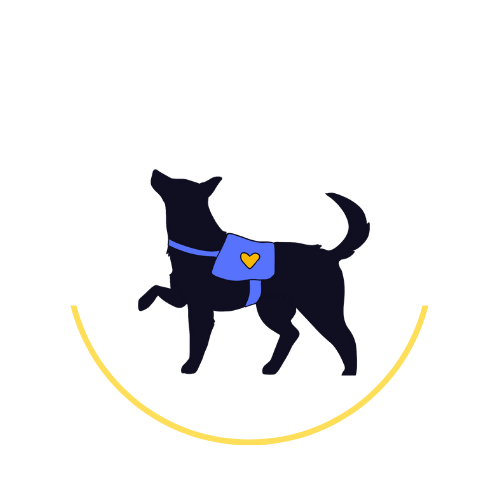How to Become a Service Dog Trainer: A Realistic Guide to Getting Started
If you have ever dreamed of becoming a service dog trainer, you are not alone. It is a rewarding path full of purpose, challenge, and real impact, but it also requires clarity, commitment, and a strong foundation in humane, science-based dog training.
Step One: Learn Dog Training Fundamentals
Before you can train service dogs, you need to know how to train dogs. Reputable, modern training is grounded in positive reinforcement and humane methods. This approach is supported by veterinary behaviorists and leading organizations in the service dog world. Here are some great places to start:
Karen Pryor Academy (KPA) – A respected school known for its focus on clicker training and positive reinforcement.
CATCH Canine Trainers Academy – Offers flexible online and in-person study options with mentoring.
Pat Miller’s Peaceable Paws Academy – Great for hands-on learning from a veteran trainer and author.
Bergin University of Canine Studies – Offers both degrees and hands-on programs with a focus on service dogs.
If you are not quite ready to enroll in a formal program, you can also volunteer with local positive reinforcement trainers, attend workshops, or begin with foundational books and courses.
Step Two: Volunteer or Puppy Raise for a Service Dog Organization
Many service dog trainers get their start by puppy raising for an ADI-accredited organization. These organizations follow clear standards and often rely on volunteers to raise puppies during their first year or more of life. This gives you practical experience and helps you understand the structure, ethics, and complexity of service dog training.
ADI, or Assistance Dogs International, is a global accrediting body that ensures member organizations use ethical and effective training practices. Most reputable service dog programs model their approach on ADI guidelines even if they are not officially accredited yet.
You can also look for opportunities to assist with training, socialization, or client education through a service dog program that uses evidence-based, accessible methods. At Helping Howls, our team welcomes passionate individuals who want to learn the foundations of service dog training through hands-on experience and positive reinforcement. We provide mentorship, structured programs, and ethical training models that prepare both dogs and humans for success. If you are looking to get your foot in the door, working with us or exploring our internship and assistant trainer roles may be a great first step.
Step Three: Consider a Pathway Through Atlas Assistance Dogs
Another accessible route is to become a Team Facilitator with Atlas Assistance Dogs. In this role, you support disabled handlers who are training their own service dogs using positive reinforcement methods. Team Facilitators often go on to become Atlas Certified Trainers, which allows them to take on a more advanced role within the organization.
Atlas is a great option if you want to work within a client-focused program that values equity, inclusion, and ethical training. Their process provides mentorship, structure, and hands-on experience for aspiring trainers.
What to Expect in Terms of Income
It is important to understand the financial side of service dog work. Dog training in general is not known for being high-paying, and nonprofit work often pays even less. Many service dog trainers work part-time or alongside a full-time job to make ends meet. Some trainers build sustainable income by running their own programs or offering services like basic obedience or behavior consults alongside their service dog training.
There are ways to make it work, especially if you develop a strong client base or work with an established organization. Just know that building a stable income in this field can take time, patience, and a lot of dedication.
Building Your Path Forward
Becoming a service dog trainer is not a fixed process. There are many ways to start, and no single right answer. Whether you begin by taking courses, raising a puppy for an ADI organization, working with a team like Helping Howls, or supporting a disabled handler as an Atlas Team Facilitator, each step helps you grow your skills and your impact. The key is to stay committed to ethical, humane training and keep learning along the way. If you care deeply about dogs and people, there is space for you in this field and your journey is just as important as the outcome.
